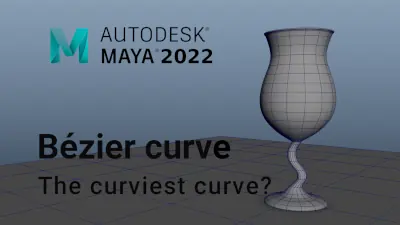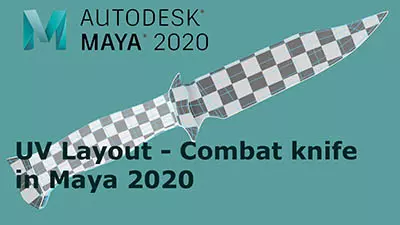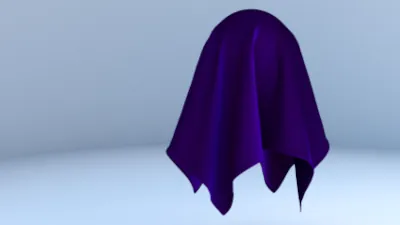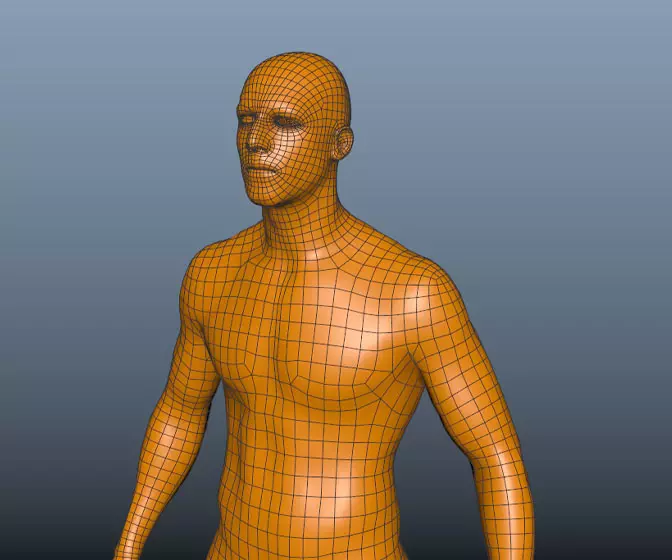Digital humans the art of the digital double
Ever wanted to know how digital doubles are created in the movie industry? This course will give you an insight into how it's done.
#
1
08-01-2004
, 06:29 PM
Displacement/Texture map design???
The attached image of a "Dreadnaught" has several shots of a model I created in SolidWorks (an engineering CAD package) and a shot of the new and improved version that I'm starting to build in Maya.
I created a test texture map with AliasSketchbook and got it correctly placed on the model, but am now stuck with very limited understanding of creating GOOD displacement and texture maps. The spaceship is supposed to be almost a mile long, so surface detail is going to be very important in conveying a sense of scale and I can't figure out how to achieve this. All of the detail in the SolidWorks model was actual geometry -- SolidWorks deals only in solids, so such detail in the geometry is expected and does not carry Maya's performance penalties. I tried importing the model to Maya from IGES and it came in looking great...at just over 300,000 polygons... Time to start over.
I've seen a lot of tutorials on texture placement or using something like DeepPaint3D, but is there anything out there for those of us using only Maya and Photoshop?
Last edited by james_s; 08-01-2004 at 06:34 PM.
#
2
09-01-2004
, 12:26 AM
You are now working with clay. Model in surfaces and weld them together. Still though, if you would engineer it in peices, then model it in peices. Do not make it one connected model. Also stay away from Booleans. This is the best peices of advice I can give you. Let me know if you nead any help.
#
3
09-01-2004
, 12:55 AM
and UV mapping a oject like this can be fairly simple (compared to othe things) for textures.
#
4
09-01-2004
, 02:39 PM
Rick: Thanks for the advice on booleans. Because I'm so used to cutting down a solid to arrive at a part (SolidWorks) I have been very tempted to head straight to the booleans in Maya. This is a completely different approach to building a model -- and it's still messing me up in a big way!
#
5
10-01-2004
, 01:52 AM
https://members.cox.net/pony2012/mapping_grid_color.zip
Full credit for this though gose to Dannyngan. It comes from his UV mapping tools I belive.
I intend to make my own verstion sometime soon.
#
6
12-01-2004
, 02:40 PM
I spent several hours over the weekend working on a displacement map and I'm going to apply it to the model this morning...
Here's hoping all goes well!

#
7
12-01-2004
, 07:18 PM
The tessellation of some of the smooth geometry is being distorted (#1) by the DMap features. What can be done to eliminate/improve the distortion?
The quality of the features is far less than I had hoped for (#2). I am currently applying a single 2048x2048 DMap to the entire object -- the "nose" of the spaceship. I have pre-filter on the DMap set to 2.0, Quadratic. In the model DMap settings, I have the Initial and Extra Sample Rates maxed out to 100 and 50, respectively. This has driven my render time (on a dual 2.8Ghz w/ 2GB RAM machine) to over 8 minutes at 640x480, Production Quality. To improve detail, should I be applying individual DMaps to specific faces, or is there a better way? Perhaps I'm going about this all wrong...?
Also, not all of the bends in the model geometry are being picked up by the wireframe view. This caused me to place DMap features across bends that I would not have, had I realized the bend was there. Is there a way to increase the detail level of the wireframe?
Thanks in advance!
Last edited by james_s; 12-01-2004 at 07:40 PM.
#
8
12-01-2004
, 07:42 PM
#
9
12-01-2004
, 11:29 PM
Anyway, the ship is supposed to be more than a mile long, so I'd like to be able to fly it right past the camera (think Star Destroyer). That's why I was planning on using displacement mapping to get additional detail out of the model.
I don't have Maya in front of me right now -- I'm on my laptop -- but I take it from your comment that I can get higher resolution out of bump maps than DMaps...?
I had been planning on using bump maps to add the LOWER detailed surface features.
Now I'm really getting concerned that I'm going about this all wrong...

Is it possible to get more detail by making the model "bigger"? I wouldn't think so due to the limitation of the DMap texture. Also, what about DMapping individual patches to maximize the rez of the map vs. surface area? Can this be done?
Also, is there a way to increase the tesselation of my surface beyond what I've done with the DMap sample rate to improve the deformation?
Last edited by james_s; 13-01-2004 at 12:54 AM.
#
10
14-01-2004
, 03:33 PM
 I traingulated. All better.
I traingulated. All better.As for my questions about improving the detail levels, anyone have any advice?
#
11
14-01-2004
, 07:32 PM
#
12
14-01-2004
, 07:42 PM
Posting Rules Forum Rules
Similar Threads
Problems Creating An ID Map For Substance Painter!
by Harv1971 in forum Maya Materials & Textures replies 0 on 18-08-2017
Help: Applying Bump Map to Select Faces
by Archaismic in forum Maya Materials & Textures replies 5 on 05-01-2013
Alias releases new product
by roach105 in forum Maya Basics & Newbie Lounge replies 2 on 24-07-2003
bump map texturing problems
by strytus in forum Maya Materials & Textures replies 19 on 05-06-2003
fur rendering failed?????
by olivermagno in forum Maya Materials & Textures replies 2 on 21-05-2003
Topics
Free Courses
Full Courses
VFX News
How computer animation was used 30 years ago to make a Roger Rabbit short
On 2022-07-18 14:30:13
Sneak peek at Houdini 19.5
On 2022-07-18 14:17:59
VFX Breakdown The Man Who Fell To Earth
On 2022-07-15 13:14:36
Resident Evil - Teaser Trailer
On 2022-05-13 13:52:25
New cloud modeling nodes for Bifrost
On 2022-05-02 20:24:13
MPC Showreel 2022
On 2022-04-13 16:02:13










